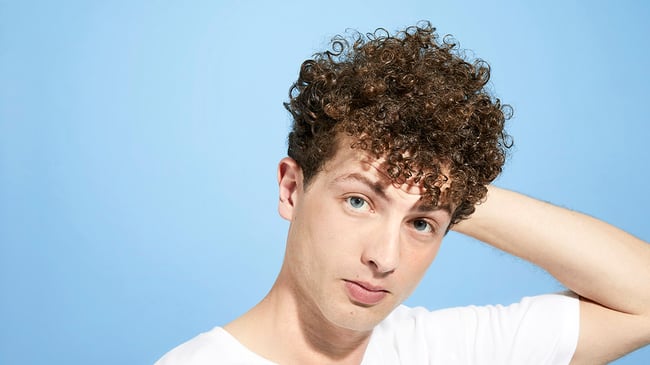

What is sulfate-free shampoo?
Photos Rachelle Simoneau
Words Anthony Vincent
Share the article on
It preserves the beauty of hair without damaging it: the best of both worlds.
We all like a foam party. Especially with shampoo in the shower. Lather usually depends on surfactants whose sulfates are controversial because of their harsh detergent nature. But certain shampoos (like our one, coming soon!) are formulated from other surfactants that are much milder and just as effective to clean. Procuring a different, much creamier lather, they're simply better for your hair. We'll tell you why.
What are sulfates?
In supermarket shampoos, we often find sulfates that answer to sweet names such as Sodium lauryl sulfate, Ammonium Laureth sulfate or Magnesium laureth-8 sulfate. These are generally cheap surfactants that give a detergent dimension that allows it to wash hair. Their role consists in making the product lather as well as emulsify the oils such as sebum and dirt with water in order to wash them off. However these cleansing bases with sulfates tend to dry hair out and irritate the scalp.Some people are actually allergic to them.
If you have a sensitive scalp or wish to lessen the weakening and loss of hair, limiting the use of products containing sulfates can help. Using a sulfate-free shampoo could really make a difference: it washes hair just as well thanks to mild surfactants, so you don't have to use more of it in the shower.
What can they be replaced by?
Instead of irritating sulfates, it is possible to use mild surfactants derived from natural ingredients. For example, sodium cocoamphocetate is a detergent derived from coconut oil which gives a soft and stable lather. Another surfactant, the lauryl-glucoside, derived from vegetals such as corn and coconut, allows to add viscosity to a product to improve its texture. Finally, sodium cocoyl glutamate is a mild surfactant that bestows a silky texture, reduces irritability and adds lather. Of course these ingredients do not smell like coconut, even if they derive from it.
A respected scalp that itches less
Contrarily to cleansing formulas that irritate or dry hair out because of sulfates, a sulfate-free shampoo turns out to be much milder. Which lessens the itching and tightening of the scalp.
Less greasy hair, for longer
Those who made the switch from a classic shampoo to sulfate-free usually notice that they are less tempted to itch their hair because of their formerly irritated scalp. It is the beginning of a virtuous circle that allows one to space out hair washes and save time. Indeed, when you run your (often dirty) hands through your hair, this makes it greasier faster. In short, since sulfates dry hair out, irritate the scalp and there are much milder and natural alternatives, you might as well make the most of it and lather up differently.
Preventing hair loss
Since sulfates are very detergent, especially the Sodium Lauryl Sulfate (SLS), they damage the hair follicle at the root of the hair which weakens it, slows down growth and over time favours hair loss. Turning to sulfate-free shampoos will therefore be much more respectful to hair that can stay on your head for longer.
In short, since sulfates dry hair out, irritate the scalp and there are much milder and natural alternatives, we might as well lather up differently.

